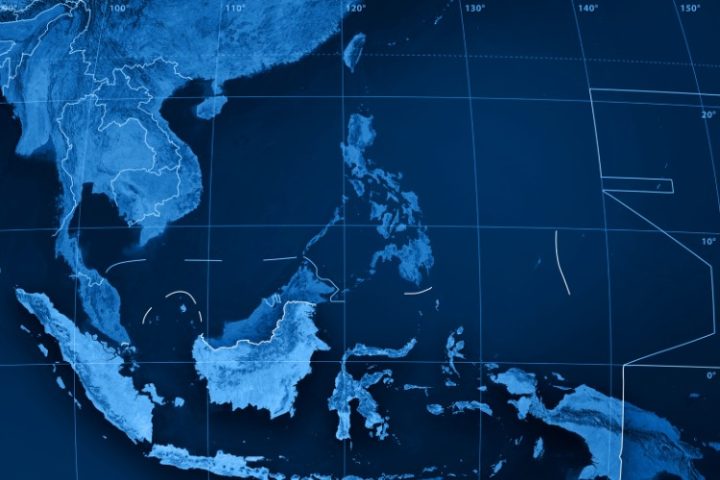
On April 12, Philippine President Ferdinand Marcos, Jr. declared that the trilateral deal among the Philippines, Japan, and the United States would alter the dynamic in the disputed South China Sea waters, while concurrently downplaying the idea that China was a target of the aforementioned agreement.
Reuters and other media sources such as The Philippine Star reported that leaders from the three aforesaid countries voiced “serious concerns” about China’s “dangerous and aggressive behavior” in the South China Sea, a passageway for more than $3 trillion of yearly shipborne commerce and the site of maritime disputes between China and other countries.
“I think the trilateral agreement is extremely important,” Marcos declared during a press conference in Washington following his meeting with U.S. President Joe Biden and Japanese Prime Minister Fumio Kishida in the countries’ inaugural trilateral summit.
“It is going to change the dynamic, the dynamic that we see in the region, in ASEAN in Asia, around the South China Sea,” Marcos added, alluding to the Association of Southeast Asian Nations bloc.
In an apparent effort not to single out China, Marcos posited that the summit was “not against any country,” but instead concentrated on boosting trilateral security and economic ties.
That being said, long-festering hostilities between China and its neighboring countries were in the limelight on April 11 when Biden hosted the Philippine and Japanese leaders at the White House to address Beijing’s military assertiveness in the contested South China Sea.
From the viewpoint of the United States, Japan, and the Philippines, China’s military actions in the South China Sea have intensified, notwithstanding Biden personally raising concerns about Beijing’s military assertiveness during a meeting with Chinese President Xi Jinping in San Francisco last year.
Commencing his White House discussions with the Asian leaders, Biden reiterated that a 1950s-era mutual defense treaty binding Washington and Manila would oblige the United States to react should the Philippines be attacked in the South China Sea.
Earlier on April 11, Biden added, “The United States’ defense commitments to Japan and to the Philippines are ironclad.”
“We express our serious concerns about the People’s Republic of China’s dangerous and aggressive behavior in the South China Sea. We are also concerned by the militarization of reclaimed features and unlawful maritime claims in the South China Sea,” the three countries also proclaimed in a statement published after the summit.
Chinese foreign ministry spokesperson Mao Ning decried on April 12 that the post-summit statement was akin to a “wanton smear attack,” with Beijing summoning a Japanese diplomat to denounce the remarks.
Also, on April 11, China’s foreign ministry slammed Marcos for having reneged on a bilateral understanding on the Second Thomas Shoal issue. “The Philippines has abandoned the current administration’s understanding with China on the Ren’ai Jiao issue,” a foreign ministry spokesperson complained.
Under the Marcos administration, deteriorating Sino-Philippine relations come amid a rise in Philippine-U.S. security cooperation, such as an increase of American access to Philippine bases, as well as with Japan, which is poised to ink a reciprocal troop deal with Manila, according to Reuters reports.
Moreover, Biden has requested from Congress an additional $128 million for infrastructure projects at Philippine bases.
Based on a report by Inquirer.net, citing readout of U.S. Defense Secretary Lloyd Austin’s meeting with Marcos on April 12, Biden urged the U.S. Congress to earmark $128 million of the 2025 budget for 36 projects under the Enhanced Defense Cooperation Agreement (EDCA), “which would more than double the amount that DoD (Department of Defense) has invested in EDCA infrastructure since the inception of the agreement.”
“This whole cooperation is critical to our collective security and continued prosperity across the region,” Austin said, maintaining Biden’s defense commitment, as quoted by Reuters.
Per the aforesaid Inquirer.net news article, the United States has thus far set aside $109 million for prior projects linked to the EDCA, a major Philippine-U.S. military pact signed in 2014 that permits the U.S. military to construct “facilities and preposition supplies, equipment and materiel inside strategically located bases in the country.”
Furthermore, Marcos voiced his confidence that around $100 billion in potential investment deals over the next five to 10 years from the recent summit will materialize.
This past year has seen a host of concerning skirmishes in the disputed South China Sea waters that have made international media headlines, including Chinese Coast Guard efforts to use a military-grade laser to temporarily blind a Filipino crew member in February 2023, as well as the current Sino-Philippine face-off around Second Thomas Shoal where Manila is bent on repairing the BRP Sierra Madre. On its end, China has been attempting to prevent Manila from successfully conducting its repair mission.
On the night of April 13, a vessel from the CCG blocked two Philippine government ships for hours just 35 nautical miles from the Philippines’ coastline, per a report by the Financial Times.
Satellite imagery and ship-tracking data gathered by SeaLight, an open-source research initiative that monitors Chinese maritime activity in the area, revealed that the Chinese ship came face to face with a Philippine maritime research vessel and an escort ship from the Philippine Coast Guard.
Notably, Beijing has employed comparable blocking and intimidating tactics on survey and oil exploration vessels from Vietnam and Malaysia, countries that are rival claimants to territories in the South China Sea.
Later, the same FT report added that both Philippine vessels halted for more than eight hours after the Chinese ship blocked their way, and only resumed their journey north-west early on April 14.
“This really is unprecedented: they intercepted them just as they crossed that nine-dash line claim,” remarked Ray Powell, SeaLight director.
Powell said the Chinese move was likely a reaction to last week’s inaugural U.S.-Japan-Philippines summit in Washington.

































 Reaction & Commentary
Reaction & Commentary
















